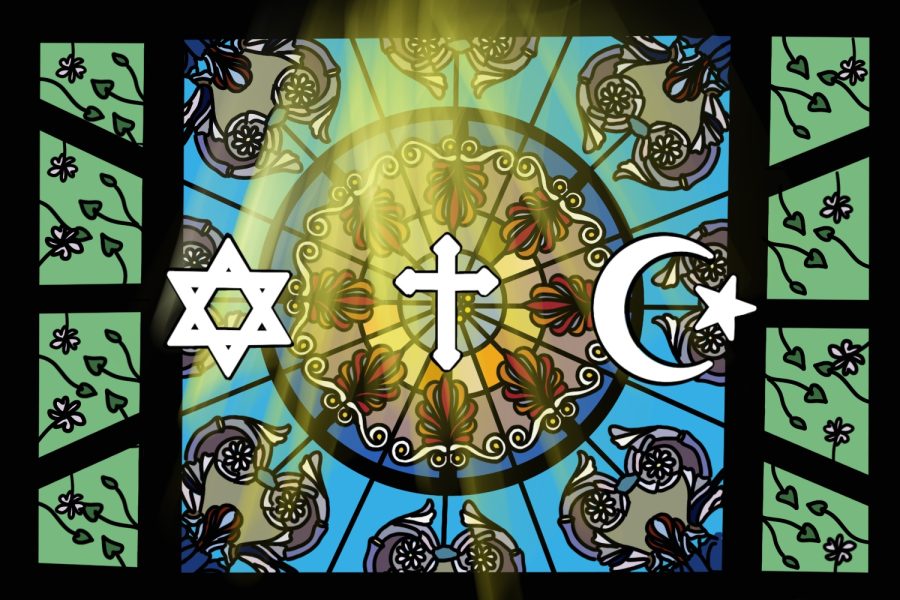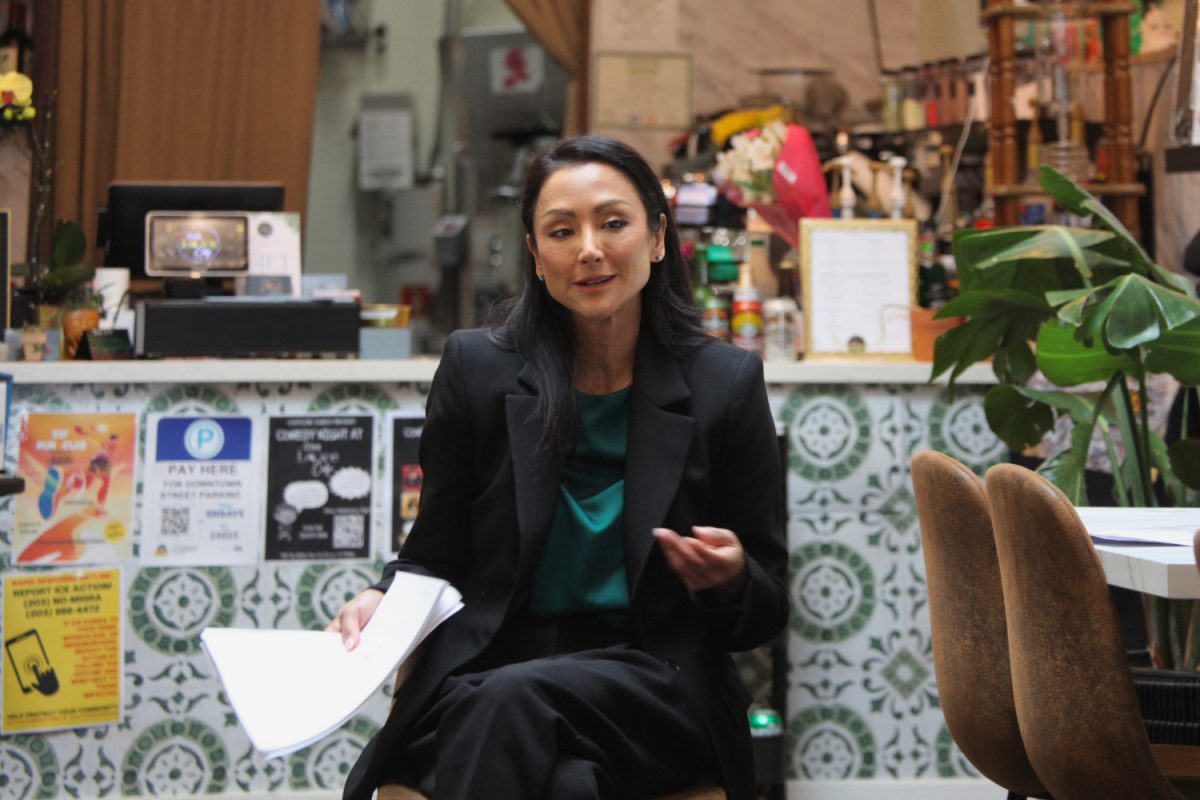“I couldn’t imagine my life without faith.”
This phrase resonates with leaders of three different religions: Christianity, Islam, and Judaism.
The three religions trace their origins back to Abraham, the first human to have a relationship with God. Islam connects to Abraham through his son Ishmael, while Judaism and Christianity do so through Abraham’s son Isaac.
Abraham represents a point at which the religions diverge, but the accounts of representatives from each religion show many parallels, demonstrating unity between the three.
Dr. Khalid Siddiqi, a teacher in Islamic studies and a lecturer of Islamic Studies and Arabic, described his perception of faith.
“From my childhood, I understood that faith means a 100% state of certainty,” Dr. Siddiqi said.
Dr. Siddiqi explained that his faith never faltered, which was the foundation for his religious career. However, not all believers achieve this 100% certainty.
“Throughout childhood and adolescence, my relationship with faith was perfunctory. It was not intentional. Growing up, for example, I had no prayer life; I had never thought about religion,” said Mark Doherty, a priest and the president and rector of St. Patrick’s Seminary in Menlo Park.
According to the representatives of the three Abrahamic religions, doubt is a natural step in one’s religious journey, no matter the religion. David Booth, the rabbi and spiritual leader of Congregation Kol Emeth in Palo Alto, embodied the adage that the beginning of a process does not define its end.
“I was largely an atheist as a teen. I became more interested in God while in college. For me, my greatest and most complete sense of being someone who believes in God arose in the last decade,” Booth said.
Like Booth, Doherty’s connection to faith changed over time.
“There was a big shift in my faith between my first and second years of college. It went from very neutral to pretty high gear. That year, I spent the summer with my great-aunts, and one day, they invited me to Mass with them. In that experience, I had a tremendous sense of God’s presence, goodness, and beauty. That was when I first felt a call to priesthood,” Doherty said.
According to Doherty, faith is a personal journey that cannot be forced into successfully taking root. Through holy texts and personal accounts, one can learn about religion, but without faith, religion remains merely a topic of discussion.
Above all, faith is unique to each believer.
“When I say that I believe in God, I mean that first, I know that God may not exist. I don’t believe in some person in the sky. Rather, I believe in a force or energy that connects consciousness and is its origin. I believe that source is deeply loving, but also completely outside human comprehension,” Booth said.
Booth’s interpretation of faith is independent of a religion’s label. Whether in a mosque, synagogue, or church, religion is welcomed unbiased of personal specificity.
“When I deliver the sermon and conduct the prayer, it’s humbling and a responsibility. From the pulpit, where I’m standing, it’s my commitment to convey the teachings of the religion. So it’s an honor, but also a responsibility,” said Motie Omari, who occasionally gives the Friday sermon at the Belmont Mosque.
As clergy members, these religious leaders report having more responsibility than giving speeches during ceremonies – they can impact lives and deepen the beliefs of others.
“Very often, in the context of the Sacrament of Confession, I can sense someone reconnecting with faith. There is this tremendous privilege to be the instrument of God’s love, healing, and comfort, through words. It’s truly incredible to be present for someone who’s hurting and make them feel, sometimes for the first time, that they’re loved, that they matter, and they’re cared for,” Doherty said.
Confession may be unique to Christianity, but the feelings and the renewal of religion evoked are not.
“I am glad there are other spiritual practices,” Booth said. “I believe that God is infinite, so it seems likely that other practices are helping illuminate facets of God that Judaism alone cannot.”























